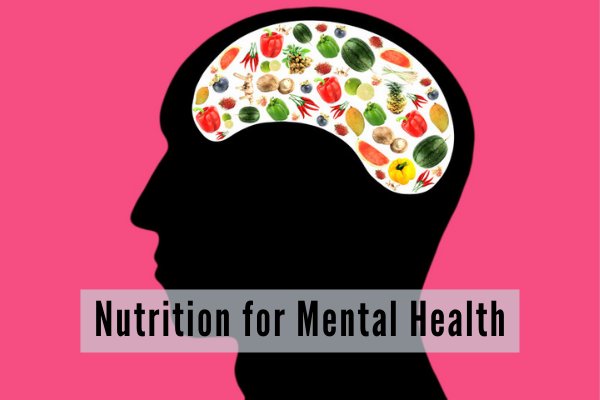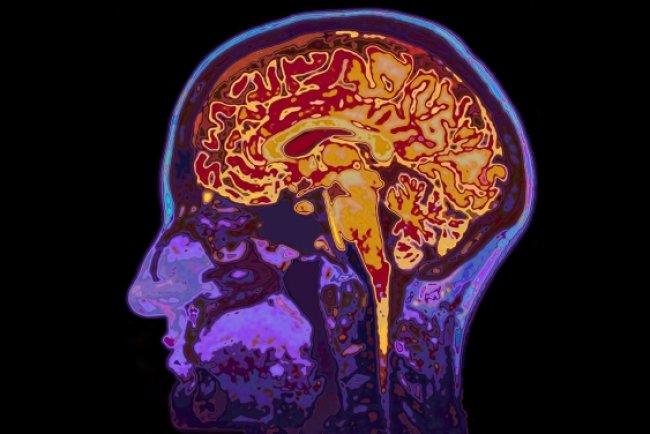The Role of Nutrition in Mental Health
Unlock the secrets to optimal mental health with our comprehensive guide on the role of nutrition in mental well-being. Discover how dietary choices and lifestyle habits impact mood, cognition, and overall wellness.

Introduction
Nutrition plays a pivotal role in maintaining both physical and mental health. In today's fast-paced world, where stress and anxiety are prevalent, understanding the impact of nutrition on mental well-being is crucial. This article explores the intricate relationship between nutrition and mental health, shedding light on the importance of a balanced diet for overall well-being.
Omega-3 Fatty Acids
Omega-3 fatty acids are essential nutrients that play a crucial role in maintaining overall health, including mental well-being. These fatty acids are polyunsaturated fats that are not synthesized by the human body and must be obtained through dietary sources. The three main types of omega-3 fatty acids are alpha-linolenic acid (ALA), eicosapentaenoic acid (EPA), and docosahexaenoic acid (DHA).
Sources of Omega-3 Fatty Acids
Omega-3 fatty acids are found in various foods, with some of the richest sources being:
- Fatty fish such as salmon, mackerel, sardines, trout, and herring
- Flaxseeds and chia seeds
- Walnuts and walnut oil
- Canola oil
- Soybeans and tofu
- Leafy green vegetables
In addition to these natural sources, omega-3 fatty acids are also available in supplement form, such as fish oil capsules or algae oil supplements for individuals following a vegetarian or vegan diet.
Benefits for Mental Health
Research has shown that omega-3 fatty acids play a significant role in supporting mental health and cognitive function. Some of the key benefits include:
Reduced Risk of Depression and Anxiety
Several studies have suggested that omega-3 fatty acids may help alleviate symptoms of depression and anxiety. EPA, in particular, has been found to be associated with a lower risk of depression and may enhance the effectiveness of antidepressant medications.
Improved Mood Stability
Omega-3 fatty acids may contribute to better mood regulation and stability. DHA, in particular, is abundant in the brain and is involved in neurotransmitter function, which can influence mood and emotional well-being.
Enhanced Cognitive Function
Omega-3 fatty acids are essential for brain health and development. Adequate intake of these nutrients has been linked to improved cognitive function, including memory, attention, and processing speed, throughout all stages of life.
Potential Role in Preventing Mental Disorders
Some research suggests that omega-3 fatty acids may have a protective effect against certain mental disorders, such as schizophrenia and bipolar disorder. However, more studies are needed to fully understand the mechanisms and potential benefits.
Studies Supporting the Link Between Omega-3s and Mental Well-being
Numerous studies have investigated the relationship between omega-3 fatty acids and mental health, with many demonstrating positive associations. For example:
- A meta-analysis published in the Journal of Clinical Psychiatry in 2019 analyzed data from 31 clinical trials and found that omega-3 supplementation significantly reduced symptoms of depression compared to placebo, especially in individuals with major depressive disorder.
- Research published in the Journal of Affective Disorders in 2018 found that higher dietary intake of omega-3 fatty acids was associated with a lower risk of developing anxiety disorders in a large cohort of participants.
- A systematic review and meta-analysis published in JAMA Psychiatry in 2018 concluded that omega-3 fatty acid supplementation was effective in reducing depressive symptoms, particularly in individuals with clinically diagnosed depression.
Antioxidants
Antioxidants play a crucial role in reducing oxidative stress within the body. Oxidative stress occurs when there is an imbalance between the production of free radicals and the body's ability to counteract or detoxify their harmful effects through neutralization by antioxidants. Free radicals are highly reactive molecules that can damage cells and contribute to various diseases, including cancer, heart disease, and neurodegenerative disorders. Antioxidants work by donating electrons to unstable free radicals, thereby stabilizing them and preventing them from causing further damage to cells.
One of the key functions of antioxidants is to protect cells from oxidative damage caused by free radicals. This protection helps maintain the integrity of cell membranes, DNA, and other cellular structures. By reducing oxidative stress, antioxidants can help mitigate the risk of chronic diseases associated with aging and environmental factors.
Foods Rich in Antioxidants
A diet rich in antioxidants is essential for maintaining optimal health and well-being. Many plant-based foods are naturally high in antioxidants, including fruits, vegetables, nuts, seeds, and whole grains. Some of the most potent antioxidant-rich foods include berries (such as blueberries, strawberries, and raspberries), leafy greens (such as spinach and kale), nuts (such as almonds and walnuts), and colorful vegetables (such as bell peppers and carrots).
Certain spices and herbs, such as turmeric, cinnamon, and oregano, also contain high levels of antioxidants. Additionally, beverages like green tea and dark chocolate are known for their antioxidant properties. Including a variety of these antioxidant-rich foods in your diet can help ensure that you're getting a wide range of antioxidants to support your overall health.
Impact on Mood and Cognition
Emerging research suggests that antioxidants may have a beneficial impact on mood and cognition. Oxidative stress has been linked to cognitive decline and mood disorders, such as depression and anxiety. By reducing oxidative stress, antioxidants may help protect against cognitive decline and improve mood stability.
Several studies have found associations between higher antioxidant intake and better cognitive function and mood regulation. For example, a study published in the Journal of Nutrition, Health & Aging found that higher intake of antioxidant-rich foods was associated with slower cognitive decline in older adults. Similarly, research published in the journal Psychiatry Research found that increased consumption of fruits and vegetables rich in antioxidants was associated with lower rates of depression and anxiety.
While more research is needed to fully understand the mechanisms underlying the relationship between antioxidants, mood, and cognition, the existing evidence suggests that including antioxidant-rich foods in your diet may have positive effects on mental health and cognitive function.

B Vitamins
B vitamins play crucial roles in various physiological functions, including those in the brain. This group of water-soluble vitamins consists of eight distinct members, namely B1 (thiamine), B2 (riboflavin), B3 (niacin), B5 (pantothenic acid), B6 (pyridoxine), B7 (biotin), B9 (folate), and B12 (cobalamin). Each B vitamin contributes uniquely to brain health and function.
Functions of B Vitamins in the Brain
- Thiamine (B1): Thiamine is essential for glucose metabolism, which is vital for brain energy production. It also supports the synthesis of neurotransmitters involved in cognitive function and mood regulation.
- Riboflavin (B2): Riboflavin plays a role in energy metabolism, assisting in the conversion of carbohydrates into ATP, the body's primary energy currency. It also contributes to the maintenance of proper brain function.
- Niacin (B3): Niacin is crucial for the production of NAD and NADP, coenzymes involved in numerous cellular processes, including energy metabolism and DNA repair. Adequate niacin levels are essential for optimal brain health.
- Pantothenic Acid (B5): Pantothenic acid is a component of coenzyme A, which is necessary for the synthesis of fatty acids, cholesterol, and neurotransmitters. It plays a role in supporting overall brain function and mood regulation.
- Pyridoxine (B6): Pyridoxine is involved in the synthesis of neurotransmitters such as serotonin, dopamine, and GABA, which are crucial for mood regulation, cognitive function, and sleep patterns.
Dietary Sources of B Vitamins
Consuming a balanced diet rich in various food sources can help ensure an adequate intake of B vitamins. Some common dietary sources of B vitamins include:
- Thiamine (B1): Whole grains, pork, nuts, seeds, and legumes are good sources of thiamine.
- Riboflavin (B2): Dairy products, lean meats, eggs, green leafy vegetables, and fortified cereals contain riboflavin.
- Niacin (B3): Niacin can be found in poultry, fish, peanuts, whole grains, and fortified cereals.
- Pantothenic Acid (B5): Beef, poultry, fish, whole grains, and avocados are rich sources of pantothenic acid.
- Pyridoxine (B6): Chicken, turkey, fish, potatoes, bananas, and spinach provide ample amounts of pyridoxine.
- Biotin (B7): Biotin is found in eggs, nuts, seeds, salmon, avocado, and sweet potatoes.
- Folate (B9): Leafy greens, legumes, citrus fruits, fortified grains, and liver are excellent sources of folate.
Effects on Mood Regulation and Energy Levels
B vitamins play a significant role in mood regulation and energy levels due to their involvement in neurotransmitter synthesis and energy metabolism. Deficiencies in B vitamins can lead to neurological symptoms, including fatigue, irritability, depression, and cognitive impairment.
Mood Regulation
B vitamins, particularly B6, B9, and B12, are involved in the synthesis of neurotransmitters such as serotonin, dopamine, and GABA, which regulate mood and emotional well-being. Adequate levels of these vitamins are essential for maintaining optimal mental health and preventing mood disorders such as depression and anxiety.
Energy Levels
B vitamins are crucial for energy metabolism, as they help convert carbohydrates, fats, and proteins into ATP, the body's primary source of energy. Deficiencies in B vitamins can lead to decreased energy production, resulting in fatigue and lethargy.
Gut-Brain Axis
The gut-brain axis refers to the bidirectional communication system between the gastrointestinal tract and the central nervous system. This complex network involves various pathways, including hormonal, neural, and immune signaling. The connection between the gut and the brain enables them to influence each other's functions, impacting not only digestive health but also cognitive processes and emotional well-being.
Research has shown that the gut microbiota, comprised of trillions of microorganisms residing in the intestines, plays a crucial role in modulating the gut-brain axis. These microorganisms, including bacteria, viruses, fungi, and archaea, interact with the gut lining and produce metabolites and neurotransmitters that can influence brain function. For example, certain gut bacteria produce neurotransmitters such as serotonin and gamma-aminobutyric acid (GABA), which are known to regulate mood and behavior.
Importance of Gut Health for Mental Well-being
Maintaining a healthy balance of gut microbiota is essential for overall health, including mental well-being. Studies have suggested that alterations in gut microbiota composition, known as dysbiosis, may be associated with various mental health conditions such as depression, anxiety, and even neurodegenerative diseases like Alzheimer's.
One mechanism through which gut health influences mental well-being is via the production of neurotransmitters. As mentioned earlier, gut bacteria produce neurotransmitters that affect mood and behavior. Additionally, the gut microbiota plays a crucial role in regulating the immune system and inflammation, both of which have been implicated in the pathophysiology of mental health disorders.
Role of Probiotics and Prebiotics in Maintaining Gut Health
Probiotics are live microorganisms that, when consumed in adequate amounts, confer health benefits to the host. Commonly found in fermented foods such as yogurt, kefir, and sauerkraut, probiotics can help restore and maintain a healthy balance of gut microbiota. Several studies have demonstrated the potential of probiotics in improving symptoms of gastrointestinal disorders such as irritable bowel syndrome (IBS) and inflammatory bowel disease (IBD).
FAQs
Can nutrition really impact mental health?
Nutrition plays a significant role in mental health, influencing mood, cognition, and overall well-being. Certain nutrients and dietary patterns have been linked to lower rates of depression, anxiety, and other mental health disorders.
What are some budget-friendly options for maintaining a healthy diet?
Affordable options such as frozen fruits and vegetables, canned beans, whole grains, and legumes can provide nutritious choices without breaking the bank.
Are there specific diets that support mental well-being?
Diets rich in fruits, vegetables, whole grains, lean proteins, and healthy fats, such as the Mediterranean diet and plant-based diets, have been associated with better mental health outcomes.
How does gut health affect mental well-being?
The gut microbiota plays a crucial role in regulating neurotransmitter production and immune function, influencing mood and behavior. Imbalances in gut bacteria have been linked to mood disorders such as depression and anxiety.
Can nutritional supplements help improve mental health?
In some cases, nutritional supplements such as omega-3 fatty acids, B vitamins, and magnesium may be beneficial for supporting mental health. However, it's essential to consult with a healthcare professional before starting any new supplement regimen.
Are there cultural factors that influence dietary choices and mental health?
Cultural food practices and beliefs surrounding food and health can influence dietary choices and impact mental well-being. Understanding cultural perspectives on food can help individuals make informed decisions about their diet and lifestyle.
Conclusion
In conclusion, nutrition plays a vital role in supporting mental health and well-being. By prioritizing a balanced diet rich in essential nutrients and adopting healthy lifestyle habits, individuals can enhance their mood, cognition, and overall quality of life. Incorporating nutrient-rich foods, managing stress effectively, and seeking support when needed are essential steps in maintaining optimal mental health.
What's Your Reaction?




















